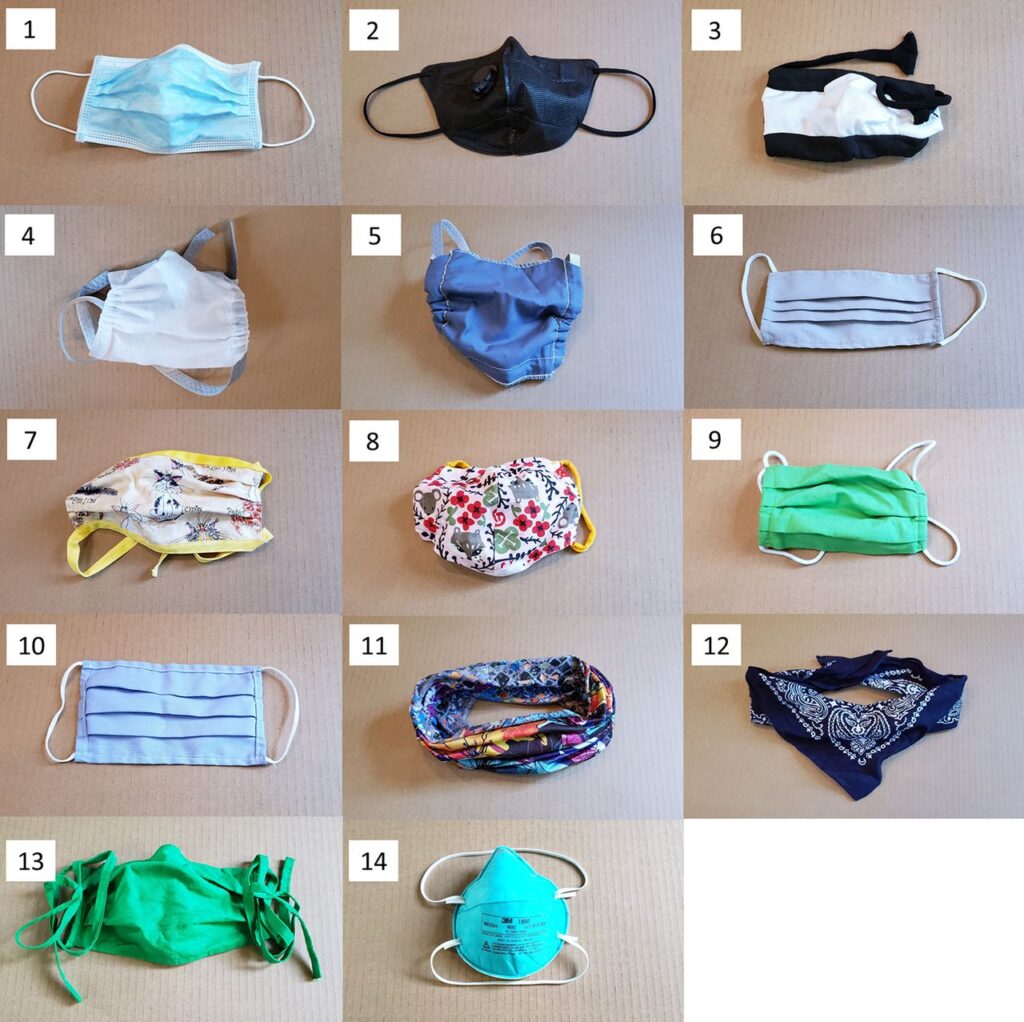A: Check out this excellent post from our friend Your Local Epidemiologist!
Types of face masks.
In the past, we’ve only used surgical masks during epidemics (think SARS and MERS). We know these work. If you need the science (including a meta-analysis) let me know. But, now that we need masks on a global scale, we are turning to other types (like cloth and bandanas). The only problem is we don’t know how effective they are.
A recent study has gained a LOT of media attention. Some headlines (and actual articles) have spun the science to conclude more than it can prove: “Scientists test 14 types of masks- here are the ones that worked and didn’t”; “Which face masks are the most (and least) effective at stopping COVID19 exposure”. None of these are accurate.
So, what actually happened?
A couple physicists had an important question: Can they use easily accessible equipment to test different face masks? This is called a “proof-of-concept” study. This is an important question because if they can find this equipment, we (epidemiologists) can start running much larger studies to answer the bigger question.
What did they do? They tested 14 masks. For each mask, one person (the same person throughout the entire study) put the mask on and said one sentence. The same person did this 10 times. For a subset of three masks, they brought in 3 other people.
What did they find? The technology works and should be used on a broader scale.
That’s IT.
We cannot make conclusions about how some masks are better than others. We need a far larger sample size, with different types of “talkers” (spitters, loud talkers, etc). We need far more details on the type of masks used in the study. We need a standardized approach to consistently test people with masks (longer breaks, maybe drink some water). Hopefully this is coming.
Translation? We don’t know how effective different face masks are… yet. We CAN make educated guesses but is different than scientific evidence.
***Added: The WHO recommends a three layer, material mask. The CDC echos this. The CDC also does NOT recommend face shields in replacement of a mask***
We need to manage our expectations of what scientific studies can and cannot do. We are looking for quick answers. Which I don’t blame given we are in a pandemic. But we also have to be smart about our “scientific translation” to the public.
Love, your local epidemiologist
Data Source
WHO recommendations
CDC recommendations



